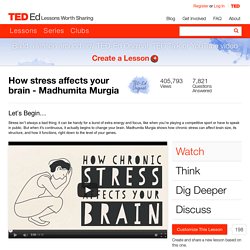

MIPprotocol. Cognition. "Toupictionnaire" : le dictionnaire de politique Définition de cognition Etymologie : du latin cognitio, action de connaître, dérivé de cognoscere, chercher à savoir, s'enquérir; prendre connaissance, par les yeux ou par ouï-dire.

On appelle cognition la faculté de connaître et par extension la connaissance elle-même (mais terme peu usité dans ce sens). La cognition englobe l'ensemble des processus mentaux qui ont trait à la fonction de connaissance et qui permettent l'acquisition du savoir. Ces processus, qui sont des fonctions cognitives orchestrées par le cerveau, recouvrent : le langage, la mémorisation, le raisonnement, l'apprentissage, l'intelligence, le jugement, la résolution des problèmes, la prise de décision, l'attention, la prise de conscience des émotions, la perception de l'environnement, etc.
Les processus de cognition doivent être différenciés des processus mentaux qui correspondent à la fonction affective, objet de la psychologie dynamique. Cognitif. C'est pas sorcier -Joie, peur, tristesse, colère... QUE D'EMOTIONS ! Du cœur au cerveau - Des émotions nécessaires à notre survie - Partie 2. Que se passe-t-il dans la tête des étudiants anxieux? Un cours de Camillo Zacchia en 2010-Partie 1. How does the brain change with age? Part #5: Hitchcock emotional movie response task. 2013 L'émotion et l'apprentissage des langues. « Au commencement était l'émotion ».

Cette célèbre phrase de l'écrivain français Louis-Ferdinand Céline introduit la tonalité de ce numéro de la revue Lidil. Si le mouvement premier de la pensée est d’associer la langue au verbe, les recherches décrites dans ce numéro abordent ici la langue à travers l’émotion comme objet d’investigation. L’originalité est de questionner l’émotion dans l’approche actionnelle, mise en œuvre actuellement dans la didactique du plurilinguisme. Les articles d’ouverture et de fermeture sont des exposés théoriques qui questionnent la place de l’émotion dans les méthodes didactiques de l’enseignement des langues et sur le plan pédagogique dans la construction de l’identité plurilingue, à la lumière de cadres théoriques de la psychologie.
La première partie se compose de cinq articles qui relèvent de la didactique en exposant des recherches empiriques sur des territoires francophones variés (Canada, Belgique, France). The benefits of a good night's sleep - Shai Marcu. "Early to bed, and early to rise, makes a man healthy, wealthy, and wise.

" -- Benjamin Franklin, 1758 (in Poor Richard's Almanac) A third of our life is spent sleeping. How much sleep a person needs changes as one ages. A new mother needs seven hours of sleep per night, but her newborn baby needs 12-18 hours of sleep per night. In general, the older you get, the less sleep you need. This can give us an idea of why sleep is so important during childhood for both growth and brain development. The hippocampus plays an important role in helping us to remember. Emotion. Psychology began as a cognitive science, and problems of cognition have been at the forefront of psychological research and theory since the early 19th-century psychophysicists, such as Weber and Fechner, and the late-19th-century investigators of learning, such as Pavlov and Thorndike.

As a result, we know a great deal about how cognitive processes operate. This understanding of cognition is the subject of the lectures on Learning, Sensation and Perception, Attention and Memory, and Thought and Language. It is also summarized in an overview of Cognitive Psychology. But cognition isn't all there is to the mind. As noted in the Introduction, the 18th-century German philosopher Immanuel Kant asserted (in his Critique of Judgment, 1790, Introduction, Part 3) that: "there are three irreducible faculties of mind: knowledge, feeling and desire. "Kant's three faculties of mind constitute what E.R. How stress affects your brain - Madhumita Murgia.
To learn about some of the most seminal experiments that show how stress changes your brain, read this interesting story in Psychology Today.

This interactive explains how mom rats impact the adult personalities of their pups, based on how much they lick them. You get to be a rat mom yourself, to see how you've changed your pup's genes! Keep reading and find out how anxious behavior in an animal can be an advantage and if epigenetic patterns are permanent!